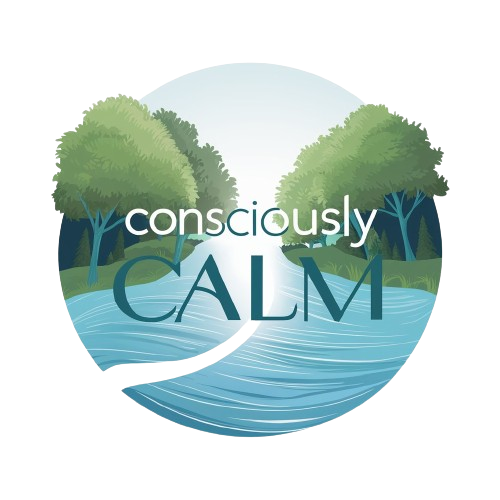10 Tips to Overcome End-of-Summer Sadness

The transition from summer to fall often stirs a mix of emotions. Many people feel a sense of loss as the long, sunny days fade away. This feeling is commonly known as end-of-summer sadness. Addressing these emotions is crucial for maintaining mental well-being. Seasonal changes can impact mood, with many experiencing symptoms similar to seasonal affective disorder (SAD). Understanding how to deal with the end of August can help ease this transition. Embracing new routines and seeking support can make a significant difference in overcoming these feelings.
Understanding End-of-Summer Sadness
What is End-of-Summer Sadness?
Definition and Symptoms
End-of-summer sadness refers to the feelings of melancholy that arise as summer transitions into fall. You might notice a drop in energy or a sense of loss as the days grow shorter. Some people experience irritability or a lack of motivation. These symptoms can feel overwhelming, but recognizing them is the first step toward managing them.
Connection to Seasonal Affective Disorder (SAD)
End-of-summer sadness shares similarities with Seasonal Affective Disorder (SAD). SAD affects mood due to changes in sunlight exposure. Research Findings on Seasonal Affective Disorder (SAD) indicate that reduced sunlight can lower serotonin levels, a brain chemical that regulates mood. This reduction can lead to feelings of depression. People with SAD often produce too much melatonin, a hormone affecting sleep cycles. This imbalance can leave you feeling fatigued and disrupt daily routines.
Why Do We Experience It?
Psychological Factors
Psychological factors play a significant role in end-of-summer sadness. The end of summer often marks the conclusion of vacations and leisure activities. You might feel a sense of nostalgia for the carefree days of summer. The return to routine can feel daunting, leading to stress or anxiety. These feelings are normal and acknowledging them can help you cope better.
Environmental Changes
Environmental changes also contribute to end-of-summer sadness. The shift from long, sunny days to shorter, darker ones can impact your mood. Sunlight affects your body's internal clock, known as the circadian rhythm. Reduced sunlight can disrupt this clock, leading to mood changes. Spending more time indoors might make you feel isolated. Engaging in outdoor activities can help counteract these effects and improve your mood.
How to Deal with the End of August
How to Deal with the End of August
Engage in Outdoor Activities
Getting outside can lift your spirits as summer winds down. The fresh air and sunshine can work wonders for your mood. You might enjoy a walk in the park or a hike in the woods. Some folks find joy in gardening or simply sitting on their porch with a good book. One person shared how they loved watching butterflies and smelling flowers as summer ended. These simple pleasures can help you feel connected to nature and boost your energy.
Set New Goals
Setting new goals can give you something to look forward to as the seasons change. Think about what you'd like to achieve in the coming months. Maybe you want to learn a new skill or start a project you've been putting off. A contributor once mentioned how learning to harvest tomatoes and start a garden brought them joy. New goals can provide a sense of purpose and excitement. Write down your goals and break them into small, manageable steps.
Maintain a Routine
Sticking to a routine can help you feel grounded when everything else seems to be changing. Try to keep a regular schedule for meals, exercise, and sleep. Consistency can make you feel more in control and reduce stress. You might find comfort in daily rituals, like having a cup of tea in the morning or taking a short walk after dinner. A routine can act as an anchor, helping you navigate the end-of-summer transition smoothly.
Psychological Strategies
Practice Mindfulness
Techniques for Mindfulness
Mindfulness helps you stay in the moment. Start with deep breathing exercises. Focus on each breath. Feel the air entering and leaving your body. Try meditation. Sit quietly for a few minutes. Pay attention to your thoughts without judgment. Yoga can also help. Stretch and move with awareness. Each pose connects your mind and body. Walking mindfully is another option. Notice each step and the sensations around you.
Benefits for Emotional Well-being
Mindfulness boosts emotional well-being. You feel calmer and more centered. Stress levels decrease. Anxiety becomes more manageable. Mindfulness enhances focus and clarity. You gain a better understanding of your emotions. This practice encourages acceptance. You learn to let go of negative thoughts. Positive feelings grow stronger. Robert Emmons, a psychology expert, says gratitude magnifies positive feelings more than it reduces negative feelings. Mindfulness supports this growth.
Cultivate Gratitude
Keeping a Gratitude Journal
A gratitude journal shifts your focus. Write down three things you're thankful for each day. These can be simple joys. A warm cup of coffee or a friendly smile counts. Reflect on these entries regularly. Notice patterns of gratitude. Journaling helps you appreciate life's blessings. Dr. Rubenstein emphasizes that gratitude involves being present and grounded. A journal keeps you anchored in reality.
Positive Impact on Mood
Gratitude lifts your mood. You feel happier and more content. Positive thoughts replace negative ones. Relationships improve as you express appreciation. Gratitude fosters resilience. Challenges seem less daunting. Your perspective shifts towards optimism. Practicing gratitude daily strengthens these effects. You build a habit of positivity. This habit enhances overall well-being.
Emphasizing Self-Care

Self-Care and Well-Being
Self-care is a crucial part of maintaining your well-being. It involves taking steps to care for yourself physically, emotionally, and mentally. This can include activities like exercising, eating healthy, and getting enough sleep. The goal is to improve your overall health and well-being.
Self-Care Practices
There are many ways to practice self-care. You can start by making small changes to your daily routine. For example, you can try to get more sleep, eat healthier foods, or take time to relax and unwind. You can also try new activities, like yoga or meditation, to help reduce stress and improve your mood.
Testimonials:
“ Dr. Linda Edwards emphasizes the importance of self-care. She says that it is essential for maintaining good health and well-being. She also notes that self-care practices can help prevent illness and improve overall health.*
According to Nathan Skelton, self-care is important for maintaining good health. He says that self-care practices can help prevent illness and improve overall health. He also notes that self-care can help reduce stress and improve mental health.
Benefits of Self-Care
Practicing self-care has many benefits. It can help improve your physical health, reduce stress, and improve your overall well-being. It can also help boost your mood and improve your mental health.
Physical Health
One of the main benefits of self-care is that it can help improve your physical health. This can include things like improving your immune system, reducing your risk of illness, and improving your overall health.
Mental Health
In addition to physical health benefits, self-care can also help improve your mental health. This can include things like reducing stress, improving your mood, and helping you feel more relaxed and calm.
Testimonials:
According to Dr. Ben Penfold, self-care is important for maintaining good health. He says that self-care practices can help improve overall health and well-being. He also notes that self-care can help reduce stress and improve mental health.
According to Andrea, self-care is important for maintaining good health. She says that self-care practices can help improve overall health and well-being. She also notes that self-care can help reduce stress and improve mental health.
Conclusion
In conclusion, self-care is an important part of maintaining good health and well-being. By taking steps to care for yourself, you can improve your overall health and well-being. Whether it's getting more sleep, eating healthier foods, or taking time to relax, self-care can help you feel your best. So, take some time for yourself and make self-care a priority in your life. Your body and mind will thank you!
Testimonials:
According to Dr. Linda Edwards, self-care is important for maintaining good health. She says that self-care practices can help improve overall health and well-being. She also notes that self-care can help reduce stress and improve mental health.
According to Dr. Ben Penfold, self-care is important for maintaining good health. He says that self-care practices can help improve overall health and well-being. He also notes that self-care can help reduce stress and improve mental health.
Conclusion
In conclusion, self-care is an important part of maintaining good health and well-being. By taking steps to care for yourself, you can improve your overall health and well-being. Whether it's getting more sleep, eating healthier foods, or taking time to relax, self-care can help you feel your best. So, take some time for yourself and make self-care a priority in your life. Your body and mind will thank you!
Addressing end-of-summer sadness is crucial for maintaining mental well-being. The tips and strategies provided can help you navigate this emotional transition. Applying these methods can ease the feelings of loss and melancholy. Professional support offers valuable coping tools and strategies. Seeking help can lead to improved mental health and access to resources. If end-of-summer blues significantly impact your daily life, consider reaching out to a professional. Remember, taking proactive steps can make a world of difference in how you feel. Embrace the change and look forward to new beginnings.
See Also
Effective Ways to Calm Anxious Thinking
Best Advice for a Relaxing Labor Day Trip
Key Meditative Practices for a Relaxing Getaway

